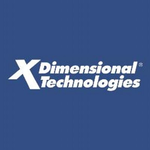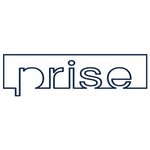Description

GreenWave

Nexsure Agency Management
Comprehensive Overview: GreenWave vs Nexsure Agency Management
GreenWave and Nexsure Agency Management are both platforms that cater to the needs of insurance agencies, but they focus on slightly different aspects of agency management and target various segments within the insurance industry. Here is a comprehensive overview:
GreenWave
a) Primary Functions and Target Markets:
GreenWave focuses on offering comprehensive solutions for sustainability management in agencies. This platform typically supports functionalities such as generating sustainability reports, organizing eco-friendly initiatives within company operations, and providing analytics to track environmental impact. GreenWave aims to serve industries that are keen on reducing their carbon footprint and adopting sustainable business practices. Their target market includes insurance agencies non-profits, and corporations committed to environmental stewardship.
b) Market Share and User Base:
GreenWave's emphasis on sustainability could position it as a niche player within the larger insurance agency management software market. While it may not hold a significant market share compared to broader industry-specific platforms, it likely sees a dedicated user base of eco-conscious companies looking to integrate sustainability into their insurance operations. Due to the increasing importance of sustainable practices, GreenWave may see a growing number of users over time, particularly as environmental regulations become more stringent.
c) Key Differentiating Factors:
- Sustainability Focus: GreenWave’s distinct emphasis on environmental management and sustainability reporting makes it unique.
- Integration with Green Initiatives: Integration capabilities with various sustainability standards and frameworks can be a significant advantage for agencies focusing on sustainable development.
- Speaking to Eco-Conscious Consumers: Their branding and functionalities appeal to organizations that prioritize environmental responsibility.
Nexsure Agency Management
a) Primary Functions and Target Markets:
Nexsure Agency Management offers a comprehensive suite of tools designed to streamline and automate many aspects of insurance agency operations. This includes customer relationship management (CRM), policy management, billing, claims processing, reporting, and analytics. Nexsure is targeted toward mid-sized to large insurance agencies looking to enhance efficiency through digital transformation.
b) Market Share and User Base:
Nexsure is a well-established player in the insurance technology market and has a significant market share due to its comprehensive functionality and focus on digitizing agency operations. With a large user base among mid-sized to larger insurance agencies, Nexsure benefits from its reputation and the broad applicability of its features across different types of agencies.
c) Key Differentiating Factors:
- Comprehensive Feature Set: Nexsure provides an end-to-end solution for managing every aspect of an insurance agency.
- Scalability: Suitable for larger agencies with more complex needs, offering scalable solutions to fit their size and operational scope.
- Customization and Integration: Offers a high degree of customization and integration with existing systems, which is crucial for agencies with specific workflow and reporting requirements.
Comparison Summary
- Target Market: GreenWave is more niche, appealing to eco-friendly initiatives, while Nexsure targets more traditional operational improvement for wide-ranging insurance operations.
- Functionality: GreenWave leans towards sustainability aspects, whereas Nexsure provides robust, generalized agency management tools.
- Market Presence: Nexsure likely has a broader presence due to its comprehensive toolset, whereas GreenWave caters to a more targeted market interested in sustainability.
While both platforms serve the insurance industry, their differing focuses and specialties cater to diverse needs within the market.
Contact Info

Year founded :
2013
+91 124 437 5999
Not Available
India
http://www.linkedin.com/company/greenwave.ws

Year founded :
Not Available
Not Available
Not Available
Not Available
Not Available
Feature Similarity Breakdown: GreenWave, Nexsure Agency Management
When comparing software solutions like GreenWave and Nexsure Agency Management, it's essential to identify the core features, interface design, and any unique aspects that differentiate these products. I'll provide a general breakdown based on commonly known features of agency management software, though specific details for these products may vary:
a) Core Features in Common
-
Client Management:
- Both systems typically offer comprehensive client management modules, allowing users to store and manage detailed customer information, history, and interactions.
-
Policy Management:
- These platforms generally provide tools to manage insurance policies, including creation, renewal, and amendments.
-
Document Management:
- Commonly, both software solutions offer features to store, retrieve, and manage documents such as policy documents, proposal forms, and other relevant files.
-
Accounting and Financial Reporting:
- Accounting functionalities usually include invoicing, billing, payment tracking, and financial reporting to aid fiscal management.
-
Task and Workflow Automation:
- Automation features help streamline routine tasks and workflows, such as follow-ups, renewals, and other processes.
-
Reporting and Analytics:
- Both likely include robust reporting and analytics tools to monitor business performance and make data-driven decisions.
-
Integration Capabilities:
- These platforms often provide integration with third-party applications like accounting software or CRM systems.
b) Comparison of User Interfaces
-
Usability:
- Both GreenWave and Nexsure might focus on user-friendly interfaces, but the details can vary significantly. Nexsure may emphasize a more traditional approach to UI with dashboards and navigation panels, while GreenWave might offer a more modern, streamlined design.
-
Customization:
- Both platforms might offer customization options, but the extent and ease of configuration can differ. Nexsure may provide detailed configuration options at various stages, whereas GreenWave might focus on a more straightforward configuration process.
-
Responsiveness:
- Both products should be responsive, but the specific user experience can differ based on how each handles mobile access or different screen sizes.
c) Unique Features
-
GreenWave:
- May include specific features focusing on eco-friendly practices or sustainable business operations, such as tracking carbon footprints or implementing paperless policies effectively.
-
Nexsure Agency Management:
- Nexsure might differentiate itself with specific insurance-focused features or compliance tools designed to aid agencies in meeting industry statutory requirements.
Overall, while there will be commonalities in core functionalities given their objectives, each software solution can have unique features or design elements that appeal to different user needs and preferences. For exact feature comparisons and unique selling points, consulting vendor documentation or conducting a demo would be beneficial.
Features

Collaborative Tools
User-Friendly Dashboard
Data Analytics
Efficient Resource Management

Client Management
Sales and Marketing Tools
Reporting and Analytics
Policy Management
Best Fit Use Cases: GreenWave, Nexsure Agency Management
GreenWave and Nexsure Agency Management cater to different business needs and have specific strengths that make them suitable for particular types of projects or organizations. Here’s a breakdown of their best-fit use cases:
a) GreenWave
Types of Businesses or Projects:
- Environmental and Sustainability Projects: GreenWave is ideally suited for projects focused on sustainability and environmental conservation. It can be used by organizations working in renewable energy, climate change research, and ecological restoration.
- Agricultural Enterprises: Companies involved in sustainable agriculture or aquaculture can benefit from GreenWave's focus on environmental impact and resource management.
- Non-profits and NGOs: Non-profit organizations that require tools for monitoring and reporting on environmental projects can find value in GreenWave.
Use Cases:
- Project Management for Eco-Friendly Initiatives: GreenWave can help manage projects with a focus on reducing carbon footprints or implementing green technologies.
- Data Analysis for Sustainable Practices: Businesses aiming to track and analyze their environmental impact can utilize GreenWave for its robust data collection and reporting features.
b) Nexsure Agency Management
Types of Businesses or Projects:
- Insurance Agencies: Nexsure is specifically designed for the insurance industry, catering to the needs of agencies looking to streamline their operations.
- Financial Services Firms: Companies involved in financial planning or brokerage services can use Nexsure for its comprehensive client management capabilities.
- Brokerage Firms: Firms that focus on multiple lines of business and need a centralized management system.
Use Cases:
- Policy and Document Management: Enables efficient handling and tracking of insurance policies and related documents.
- Client Relationship Management: Helps agencies manage client interactions, enhance service delivery, and improve customer engagement.
- Sales and Marketing Automation: Assists in automating marketing campaigns and sales processes to improve overall business efficiency.
d) Industry Verticals and Company Sizes
GreenWave:
- Industry Verticals: Environmental science, agriculture, non-profit, renewable energy.
- Company Sizes: Best suited for small to medium-sized organizations and non-profits that need tailored solutions for environmental project management and sustainability tracking.
Nexsure Agency Management:
- Industry Verticals: Insurance, financial services, risk management.
- Company Sizes: Works well with small to large insurance agencies and brokerages that require a comprehensive system to manage complex portfolios and client data efficiently.
In summary, GreenWave is optimal for businesses with a focus on environmental impact, sustainability, and project management within eco-friendly domains. In contrast, Nexsure Agency Management is crafted for insurance and financial services firms that need robust tools for managing client relationships, policy documentation, and sales processes.
Pricing

Pricing Not Available

Pricing Not Available
Metrics History
Metrics History
Comparing undefined across companies
Conclusion & Final Verdict: GreenWave vs Nexsure Agency Management
When evaluating GreenWave and Nexsure Agency Management, it is crucial to consider their features, pricing, customer support, scalability, and overall effectiveness in meeting the needs of an insurance agency.
a) Best Overall Value:
The best overall value depends largely on the specific needs of the agency. GreenWave might be ideal for agencies looking for a solution with robust environmental data management capabilities and strong analytics features, whereas Nexsure Agency Management could be more appropriate for those requiring comprehensive agency management with an emphasis on customer relationship management and workflow automation. Therefore, the decision should be based on the priorities of the agency, such as environmental focus versus administrative efficiency.
b) Pros and Cons:
GreenWave:
- Pros:
- Specialized environmental data analytics tools.
- Advanced sustainability metrics integration.
- User-friendly interface with customizable dashboards.
- Cons:
- May have a steeper learning curve for those unfamiliar with environmental data.
- Could have higher costs associated with specialized features.
- Might lack in broader insurance-specific functionalities compared to Nexsure.
Nexsure Agency Management:
-
Pros:
- Comprehensive insurance-specific features like policy management, claims processing, and CRM.
- Scalable solutions suitable for agencies of various sizes.
- Strong focus on workflow automation and efficiency.
-
Cons:
- Could be overwhelming for agencies not needing extensive insurance-specific capabilities.
- Potentially less emphasis on environmental data management.
- May require more training due to extensive functionalities.
c) Recommendations for Users:
-
Define Priorities: Agencies should clearly define their priorities—whether they need a specialized focus on environmental data and sustainability (leaning towards GreenWave) or comprehensive insurance agency management and CRM features (leaning towards Nexsure).
-
Assess Current Systems: Evaluate current systems in place to determine which product would integrate better with existing workflows and platforms.
-
Budget Considerations: Consider the budget and evaluate the pricing model of each product, ensuring they align with the financial capabilities of the agency.
-
Pilot and Feedback: If possible, engage in pilot trials or demos for both products and gather feedback from the staff on usability and effectiveness to make a well-informed decision.
-
Future Scalability: Consider the future growth and potential expansion of the agency, choosing the platform that offers better scalability options.
In conclusion, the choice between GreenWave and Nexsure Agency Management should be carefully aligned with the specific needs, priorities, and strategic goals of an agency. By evaluating the pros and cons of each and making a decision based on informed recommendations, agencies can select the tool that offers the most value and contributes effectively to their operational success.
Add to compare



